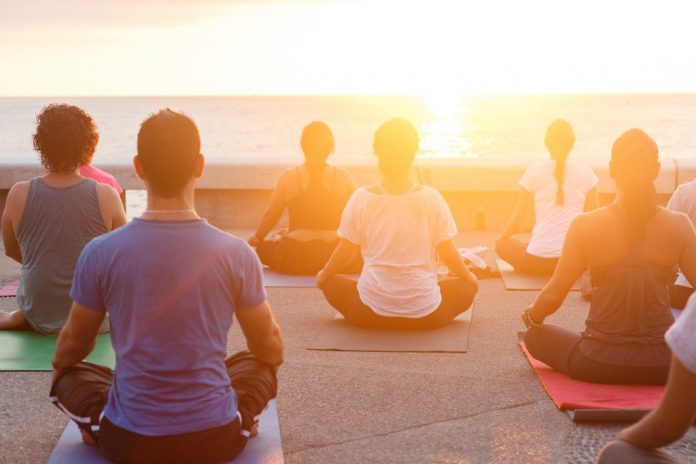New research published in the Annals of Internal Medicine reveals that participating in yoga classes (in this case online classes) benefits those suffering from knee osteoarthritis (OA).
Researchers from the University of Melbourne conducted a randomised clinical trial involving 212 adult participants with knee osteoarthritis to determine if a 12-week unsupervised online yoga program could provide more health benefits than online education alone.
Researchers worked with yoga therapists, physiotherapists, and people with lived experience of OA to design an online yoga program tailored specifically to those with knee osteoarthritis.
Upon completing the 12-week yoga program, participants reported greater improvements in physical function, but not knee pain, compared with the control group who only received online education.
While these improvements were modest, 60% of yoga participants did report improved function of an amount that would be considered clinically important, compared to 44% of the control group.
Participants completed around two-thirds of the recommended number of yoga sessions during the 12 weeks, but this declined once the program became optional.
As a result, benefits were not sustained at 24 weeks.
Research lead, University of Melbourne’s Professor Kim Bennell, says this research highlights the benefits of free, online yoga and reinforces the importance of ongoing exercise.
“Osteoarthritis is very common, it affects 1 in 5 people over 45 years in Australia and often involves the knee joint,” says Professor Bennell.
“Exercise is a key treatment, but many people admit to not undertaking exercise.
“Our study showed the benefit of a free, online yoga program that allowed people with osteoarthritis from all over Australia to exercise from the comfort of their own home and at a time that suits them. However, we noticed motivation did wane once the 12-week program was completed and exercise became optional.”
Researchers say although the results are promising, further research is needed to fully establish the effects of unsupervised online yoga and enhance treatment benefits.
“This free-to-access home-based yoga program could be a scalable option to improve patient access to exercise, a core recommended osteoarthritis treatment,” says Professor Bennell.
“By removing barriers such as cost and travel to in-person yoga classes, we hope to improve access to exercise programs and help a greater number of people.”




